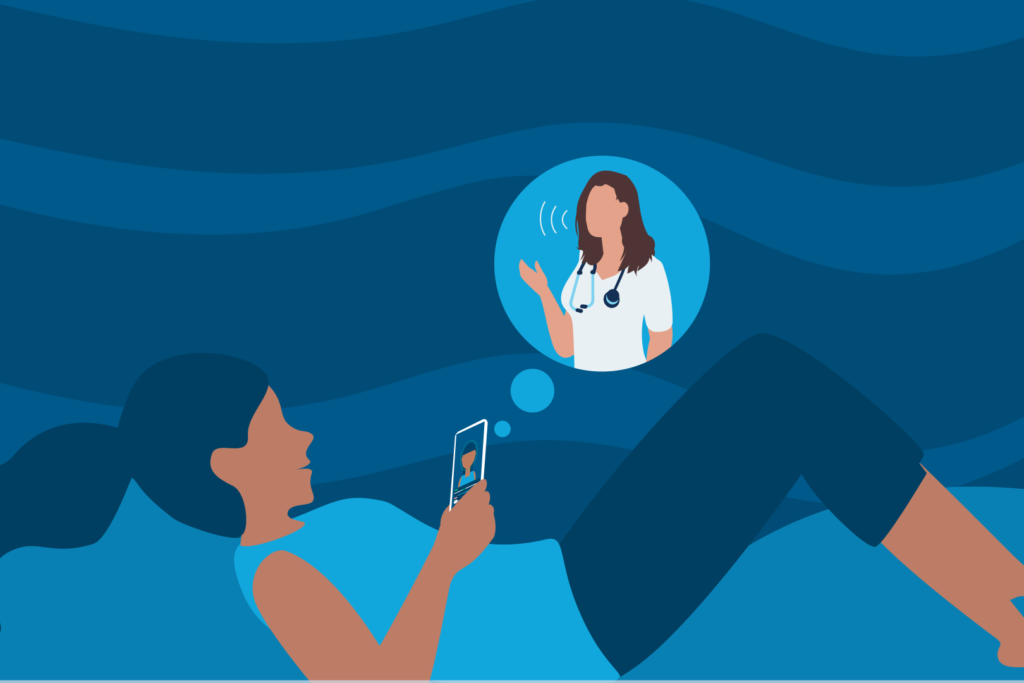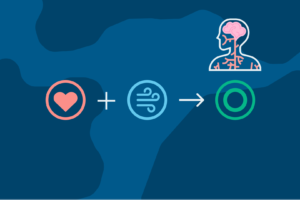Biofeedback might sound like a daunting term if science isn’t your thing or it could remind you of a touchy-feely alternative to “real” medicine.
But if you live with migraine or another chronic illness then learning how biofeedback works could offer you new hope.
That’s because your mind is more powerful than you think.
How Biofeedback Works
Biofeedback is the process of monitoring your body’s vital signs and then using that data in real-time to learn to control those normally automated functions. By learning to change your heart rate, breathing and body temperature, you can improve your health.
When you monitor your vital signs in real-time, whether in a clinical setting with medical professionals or at home, you begin to see the link between how you feel and these biometrics and then use your thoughts and relaxation techniques to modify them.
For example, most of the time you breathe in and out without any thought or effort. However, if you decide to concentrate on your breathing, you can control the depth and rhythm of your breath. Likewise, you can learn to control other bodily functions such as finger temperature, which gives information about circulation, and heart rate to relieve and/or prevent unwanted illness symptoms such as migraine.
While the term “biofeedback” was coined in the 1970s, the history of bodily control and relaxation can be traced back much, much further, to countries such as India where yogis have long taught breathing techniques that alter how practitioners feel.
While reputable researchers have spent decades fine-tuning the modern applications of biofeedback in clinical settings you might recall one popular body of work that helped bring the mind-body connection into the public eye: Bill Moyers’ 1993 documentary “Healing and the Mind,” broke new ground in helping mainstream Westerners understand that the mind is not a separate entity from the rest of the body and has incredible healing power.
How Biofeedback Therapy Works
In a medical facility, such as a psychologist’s office or hospital clinic, biofeedback requires hooking up a patient to wires and other equipment to measure and show changes in various physical processes such as muscle activity, finger temperature, heart rate, sweat gland activity, brain electrical activity and other physical functions that accompany changes in thoughts, emotions, and behavior.
Over multiple sessions, the patient is taught how to alter those physical functions in a way that can benefit a number of ailments, including chronic pain, stress, anxiety and more.
Biofeedback for Migraine
Biofeedback and relaxation therapies are scientifically-proven therapies for the prevention and management of migraine. Their effectiveness has been established in hundreds of studies over 50 years of research. The therapies are endorsed by the American Headache Society, National Headache Foundation and American Academy of Neurology, among dozens of other national and international medical and psychological scientific organizations.
Biofeedback with relaxation training typically yields a 45 to 60 percent reduction in headache attack frequency. This is equivalent to the reduction achieved by many traditional oral migraine preventive medications, such as propranolol (Inderal®) and amitriptyline (Elavil®), but without side effects. Biofeedback and relaxation therapy can be used alone or in conjunction with medication and other therapies and are safe in all stages of life. Biofeedback can be used by children, adults, and seniors and is a great option when medications may not be safe, such as during pregnancy or breastfeeding or if other medical conditions are present.
Juva Health is developing an app that will let you learn and practice biofeedback relaxation therapy at home — no wire hookups or special equipment required. This treatment will be much more affordable than visiting a clinic and will be a safer alternative to drugs.
Questions? Email us at info@juvahealth.com or call us at (925) 750-8477. Click here to sign up for email alerts, so you’ll be among the first to know when the app is available for download.



